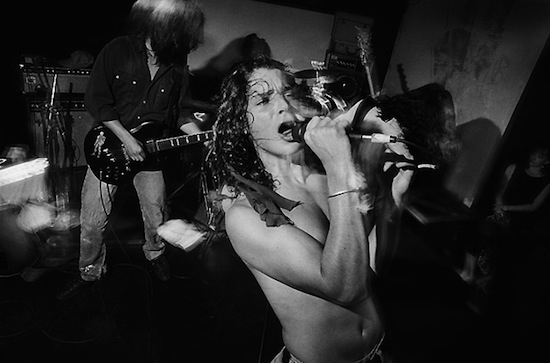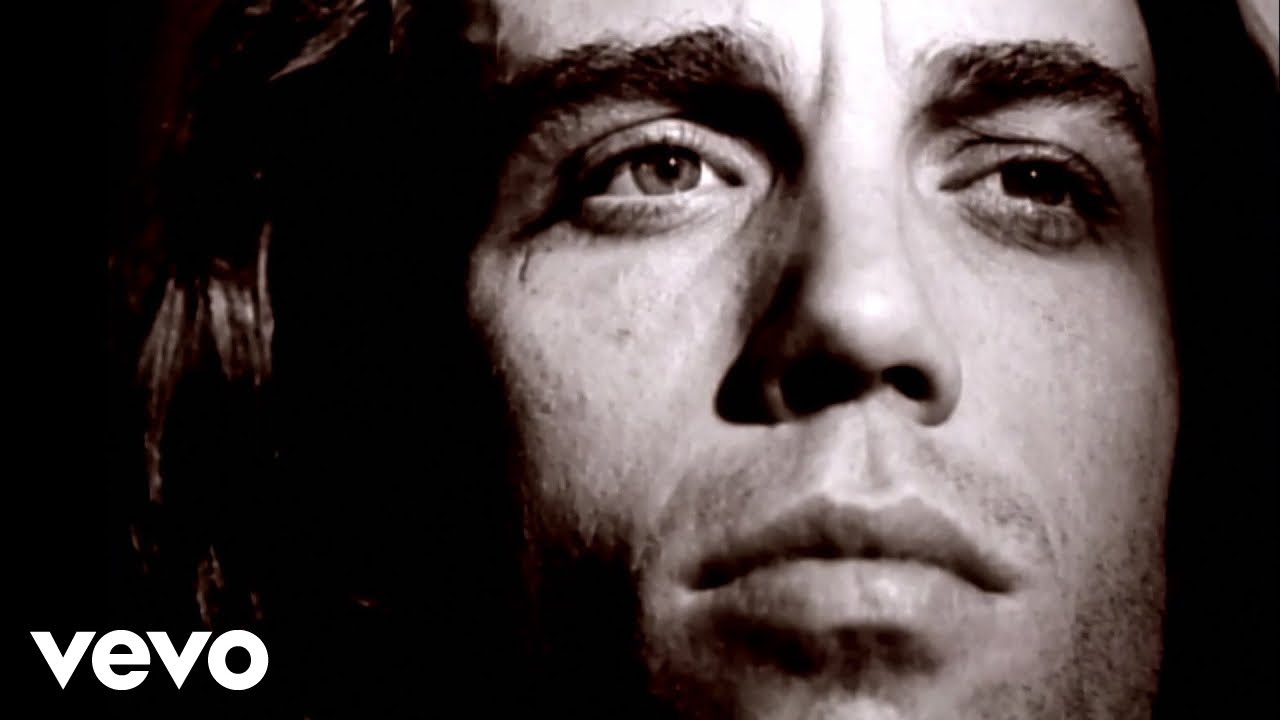Soundgarden’s Superunknown was described alternatively as the grunge swansong and the album that allowed the band to transcend that label – though clearly the latter proved to be wishful thinking. All bands who had been stuck with the grunge tag were desperately trying to escape it, and while this album was a good effort, it wouldn’t be the actions of anyone in Soundgarden that put an end to the genre. It seems that the one favour Kurt Cobain did for his contemporaries was to take grunge to the grave with him. Superunknown‘s release date (a mere month before Cobain’s suicide 20 years ago) merely got everyone ready.
I’ve always thought grunge was a silly genre name and a completely redundant label. It says nothing of substance about the music and its impotency is proven by how it has withered and died; several mooted grunge revivals have failed abysmally to take off. Not only does the label curb-stomp any notion of individuality – a hallmark of most genre labels – but it suggests a lack of attention to detail or clean fine-tuning which is quite obviously not applicable to a band of Soundgarden’s caliber. In particular, a band with a drummer like Matt Cameron surely shouldn’t belong there. Cameron’s strange time signatures were a key element of the band’s sound and his mastery of switching between them without jarring the listener surprised even his bandmates – who were often left to plead ignorance when asked by journalists about the intentions behind the grooves. He could even direct a song in standard 4/4 and make it sound like something far more complex. Then there was Kim Thayil, the metalhead guitarist with a penchant for turning to experimentation and doomy riffing. A populariser of drop d tuning, Thayil gained a few further respect from the shredding world with his strange E-E-B-B-B-B tuning on tracks like ‘My Wave’ and ‘The Day I Tried To Live’.
Frontman Chris Cornell’s lyrics switch between vengeful aggression, compassion, apocalyptic hopelessness and bitterness. Cornell may never shake the Robert Plant comparisons, but his style lends itself to a particular brand of abject misery that Led Zeppelin never really broached. However, these lyrics and the music’s mood of suffocating pessimism is the one thing that truly ties Soundgarden to their particular era in rock music.
Much of Superunknown‘s success is derived from refinement rather than innovation. The band traded in their old techniques of bashing and thrashing their songs onto tape within the space of a month for a more lengthy visit to the studio. They also sacked their long-time collaborator behind the desk, Terry Date, for the Red Hot Chili Peppers’ producer Michael Beinhorn. It had been three years since Badmotorfinger had garnered the band some praise as well as bagged them a slot opening for Guns N’ Roses on the massive Use Your Illusion stadium tour. The band could now afford to take a few more whacks at the final product and add all kinds of weird nuances and novelties. Possibly as a result of this, the album possesses a sterling consistency worthy of a true ‘albums band’, with the only outliers being the two bassist Ben Shepherd-penned morsels ‘Head Down’ and ‘Half’ – the latter of which has a chunky metal hook performed in strings that could easily compete with any in the Cornell/Thayil canon – as well as ‘Black Hole Sun’, which almost seems a bit too pretty and Beatlesesque to be sat in the middle of all that crushing, chord-mashing darkness. That tune does enough on its own to warp the view of the band in hindsight as it will now almost always serve as a first introduction to the group.
‘Black Hole Sun’ was not originally seen as a single by the band, who rather decided to promo the album first with ‘Spoonman’, featuring Seattle street performer Artis the Spoonman on the track and in the video. With its heavy sliding riff and melodic vocal, ‘Spoonman’ is, if anything, closest to being a throwback to the band’s previous record.
Those first two albums were so bogged down in their Sabbath and Zeppelin fetishisation that it was difficult to accept many of the stand-out tunes at face value. There are still plenty of Zep comparisons to be made on Superunknown – particularly on ‘Limo Wreck’ with its distinct ‘Dazed And Confused’ vibe in the verse – but this was the point where the boys were able to pull up their big boy originality pants and not find themselves tripping over them moments later. Cornell himself has more recently admitted that he found creativity a bugbear, not in least down to his massive boozing habit at the time. But given that this is the band’s fourth album, they are late bloomers. While the metal side of things is still very strong here, the band corralled their melodic skills and for the first time produced a genuinely radio-friendly record. Obviously this lost the band a lot of fans who preferred the caustic headbanging of earlier records, but also cemented them as hitmakers. ‘Spoonman’ and ‘Black Hole Sun’ earned the band Grammys (in the METAL category, I might add) and the album itself debuted at the top of the charts in America. But no matter the mainstream success, if you ever had any doubt of the band’s metal chops, a quick flick over to the sublimely dissonant crunch of ‘4th Of July’ should set you straight. Borrowing, again, a wee bit of a ‘Dazed And Confused’ vibe, but hammering it into a dirty, oozing sludge that threateningly simmers under Cornell’s understated croons. It all sums up to an effect, one achieved so seemingly effortlessly, that would have any 70s-influenced metal band feeling a bit green.
‘Kickstand’ is the only track that seethes with a punk-rock mentality while ‘Half’ is lost in Eastern psychedelic vibes – showing that they thankfully have more than two genre influences. Cornell really outdoes himself on ‘Fell On Black Days’ and album closer ‘Like Suicide’ (a tune apparently about a bird Cornell had to put out of its misery after it flew into a window). Both are typical of the band’s most effective songwriting, smooth, simple, not over thought nor overproduced. All together the tunes add up to a varied, well-rounded album that represents the band that produced it. Superunknown was not actually the end of anything in particular, but it was definitely the apex of Soundgarden’s ouput. The recording process of their next album Down On The Upside would prove to be slog for all those involved and Thayil in particular felt his role in the group shrink as Cornell wanted to lighten things up.




